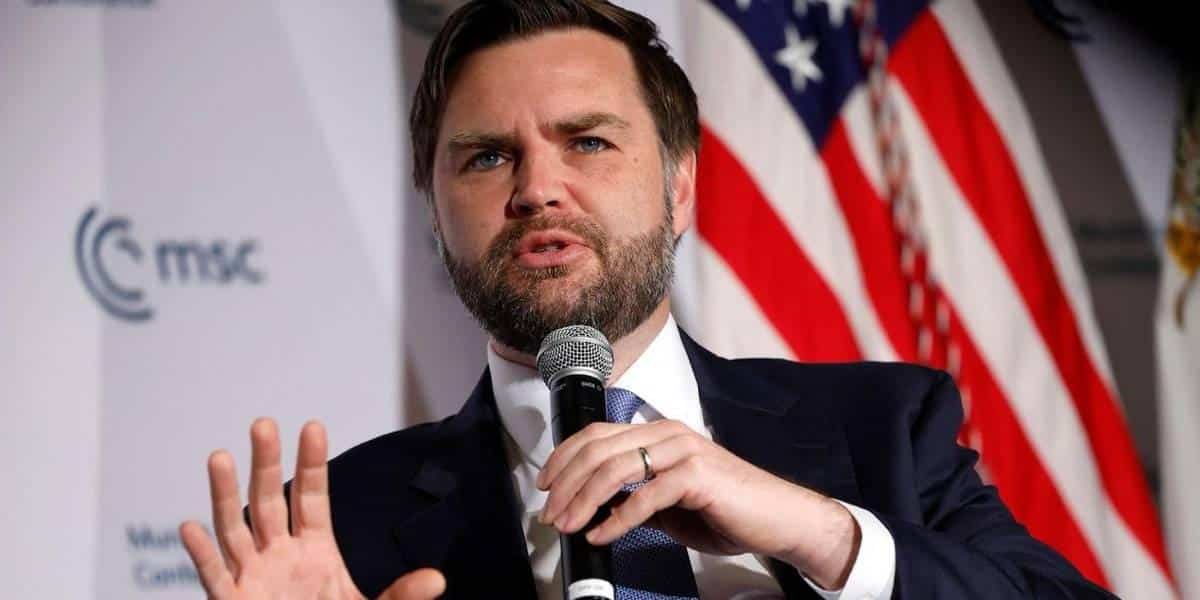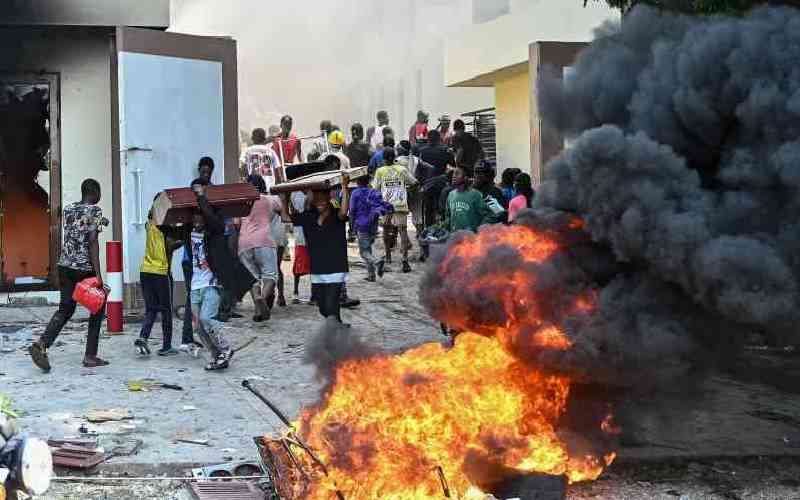Escalation of Israel-Iran Conflict and US Strikes

The Middle East is currently gripped by a severe escalation of conflict, marked by recent United States airstrikes on Iran's nuclear facilities amidst an ongoing war between Israel and Iran. On Sunday, June 22, 2025, the U.S. launched "Operation Midnight Hammer," targeting three of Iran's key nuclear sites: Fordo, Natanz, and Isfahan.
U.S. Vice President JD Vance clarified the administration's stance, stating the strikes were aimed at Iran's nuclear infrastructure, not at the nation itself. "We’re not at war with Iran. We’re at war with Iran’s nuclear program," Vance said, emphasizing the objective was to destroy and set back the program, particularly the Fordo site. President Donald Trump, in a national address, claimed the strikes had "completely and totally obliterated" these facilities and warned of "far greater" attacks if a diplomatic solution was not reached. Defense Secretary Pete Hegseth reiterated that the operation did not target Iranian troops or people and was not about regime change, despite Trump later hinting at it on Truth Social, suggesting "MAKE IRAN GREAT AGAIN" through a potential regime change. The main strike package involved seven B-2 Spirit bombers flying an 18-hour mission from the U.S. mainland. While initial assessments indicated "extremely severe damage and destruction" to all three sites, the full extent of the underground damage, particularly at Fordo (buried 90 meters or about 300 feet deep), remains unconfirmed by the IAEA. There is speculation that highly enriched uranium may have been moved from these facilities prior to the strikes. Iran’s Red Crescent Society reported no fatalities.
The escalation comes after a long history of tensions surrounding Iran's nuclear ambitions. Iran's nuclear program dates back to the 1950s under the then Shah, Mohammad Reza Shah Pahlavi, with Western support for civilian use. Following the 1979 revolution led by Ayatollah Khomeini, the program was suspended, only to be quietly resumed in the 1990s, with Iran citing a need for peaceful nuclear energy. By 2000, Western intelligence agencies and Iranian defectors suspected weaponization efforts. The U.S. and its Western allies opposed Iran acquiring nuclear weapons due to fears that regional rivals like Turkey, Saudi Arabia, and Egypt might pursue their own nuclear programs, triggering a nuclear arms race. Concerns also included Iran's potential audacity in supporting proxy militias, threatening U.S. interests, and a greater risk of accidental or intentional nuclear conflict. Iran, a signatory to the Nuclear Non-Proliferation Treaty (NPT), maintained its program was for peaceful use and did not contravene the treaty.
However, Israel views Iran's nuclear program as a direct threat to its existence, often leveraging its strong alliance with the U.S. and its Western allies to push for sustained pressure on Tehran. This is despite it being an "open secret" that Israel possesses nuclear weapons, which it neither confirms nor denies. Even Persian Gulf Arab countries, Egypt, and Jordan, despite professed solidarity with Iran, believe Iran seeks nuclear weapons to gain geopolitical dominance. The International Atomic Energy Agency (IAEA) resumed inspections in 2003 after undeclared Natanz and Arak nuclear facilities were exposed. Diplomatic efforts often failed, leading to U.N. Security Council and unilateral U.S. economic sanctions. A temporary breakthrough occurred with the 2015 Joint Comprehensive Plan of Action (JCPOA), signed by the U.S., China, Russia, France, the U.K., Germany, and Iran. Under the JCPOA, Iran agreed to reduce uranium enrichment, dismantle atomic reactors, and accept regular IAEA inspections in return for lifted economic sanctions. Israel and Saudi Arabia were reportedly unhappy with this agreement. In 2018, President Trump unilaterally withdrew from the JCPOA, restoring U.S. sanctions, which prompted Iran to resume limiting IAEA access and accelerate uranium enrichment. Israel, through its intelligence agency Mossad, continued to assassinate Iranian nuclear scientists and conducted aerial attacks on Natanz and other facilities.
The recent direct conflict began on June 13, 2025, when Israel launched "Operation Rising Lion" with aerial bombardments and ground operations by Mossad agents on Iran's missile and nuclear facilities, as well as military leaders and security services. Iran swiftly retaliated with "Operation True Promise III," firing hundreds of ballistic missiles and drones into Israel, which responded with fighter jets and drones. With the failure of recent rounds of talks in Muscat, Oman, and Trump's prior warning of military action should talks fail, the U.S. decided to join Israel's campaign, intensifying the war. Casualties have been reported on both sides, with Iran’s health ministry reporting over 400 killed by Israeli strikes and 24 Israelis killed by Iranian attacks.
Iran's reaction to the U.S. strikes was swift and defiant. Foreign Minister Abbas Araghchi condemned the attacks as "outrageous" and "lawless and criminal" behavior, stating the U.S. and Israel had "crossed a very big red line" and vowing continued self-defense. He also said he would travel to Moscow for "serious consultations" with President Vladimir Putin. Iran also threatened that any country used by American forces to strike Iran will be considered a "legitimate target" for its armed forces, warning of "irreparable consequences." President Masoud Pezeshkian vowed a "response," while Supreme Leader advisor Ali Shamkhani stated that "even if nuclear sites are destroyed, game isn’t over, enriched materials, indigenous knowledge, political will remain." The Iranian parliament backed a measure to close the Strait of Hormuz, a critical global oil chokepoint through which about 30 percent of global seaborne oil shipments pass, though the final decision rests with the Supreme National Security Council and Supreme Leader. Protests against U.S. and Israeli attacks erupted in Tehran. The Department of Homeland Security in the U.S. issued a national terrorism bulletin warning of possible cyber attacks and violence, including antisemitic hate crimes, following the strikes, citing a "heightened threat environment." U.S. cities like New York City and Washington D.C. increased police presence. A communique reportedly delivered to Trump at the G7 summit suggested Iran might unleash sleeper cell terrorists on U.S. soil if attacked. Iran's Huthi allies in Yemen also reiterated threats to resume attacks in the Red Sea if Washington joined the war, saying they were "ready to target US ships and warships." Analysts like Ali Vaez of the International Crisis Group noted that destroying Fordo wouldn't necessarily end Iran's nuclear program. Options for Iran's "calibrated response" include attacking U.S. assets, closing the Strait of Hormuz, or even attacking energy facilities in the Gulf, or a more limited retaliation against the U.S. before returning to strikes against Israel and finally negotiating a settlement. Some suggest Iran might allow Trump a "symbolic win" and retaliate solely against Israeli targets to keep Washington out of the war.
Global reactions to the escalating conflict have been varied but largely concerned. Arab countries, including the United Arab Emirates, Qatar, and Oman, strongly condemned the U.S. airstrikes and urged de-escalation and a return to diplomacy. The European Union called for all sides to "step back" and return to negotiations, stressing Iran must not be allowed to develop nuclear weapons. UK Prime Minister Keir Starmer called on Iran to "return to the negotiating table," stating Iran can never be allowed to develop a nuclear weapon. Russia "strongly condemned" the bombings, calling them "irresponsible" and a "gross violation of international law," warning of a "dangerous escalation" that further undermines regional and global security. China's foreign ministry "strongly condemns" the U.S. strikes, warning they "escalate tensions," and called on all parties, especially Israel, to cease fire. UN Secretary-General Antonio Guterres described the situation as a "dangerous escalation in a region already on the edge" with "no military solution," urging diplomacy and peace to avoid "another cycle of destruction" and retaliation. Pope Leo XIV called for an end to all wars, stating "humanity is crying out for peace." Ukraine, however, supported the strikes as a "clear signal" that Iran's nuclear program must be stopped. The Organisation of Islamic Cooperation (OIC) warned of heightened tensions and urged dialogue. Pakistan condemned the U.S. attacks as a violation of international law. Hamas labeled the U.S. action as "brutal aggression," and Yemen's Huthi rebels called it a "blatant declaration of war." The UN Security Council remains deeply divided, with Russia, China, and Pakistan circulating a draft resolution calling for an "immediate ceasefire" and condemning attacks on peaceful nuclear sites, while others like France and Britain urged Iranian restraint. Israel's UN ambassador rejected the proposed resolution, expressing appreciation for U.S. and Israeli actions.
The economic implications of the conflict are significant and far-reaching. Global oil prices surged by over 2% immediately after the U.S. strikes, with Brent crude and West Texas Intermediate futures seeing sharp increases, raising concerns about disruption to energy markets. Economists at MUFG warned of "high uncertainty" and a "real negative impact on most Asian economies" as many are net energy importers. The potential closure of the Strait of Hormuz, a key logistical channel for maritime trade, would drastically impact global oil supplies. In Nigeria, an oil-dependent economy, this situation presents a complex paradox. While higher oil prices might temporarily boost government revenues, they simultaneously inflict severe economic pain on everyday Nigerians through increased diesel costs, transport fares, manufacturing expenses, inflation, and potential interest rate hikes. Diplomatically, Nigeria, a multi-religious nation with historical support for the Palestinian cause, must carefully navigate its growing strategic relations with Israel in areas like technology, security, counterterrorism, agriculture, and water management, while maintaining ties with other Islamic oil-producing allies like Saudi Arabia and the UAE, and Western partners. The risk of broader regional war and ideological spillover into Nigeria, potentially emboldening extremist rhetoric and undermining national security, highlights the urgent need for enhanced intelligence, border control, and proactive multilateral diplomacy by African nations through bodies like the African Union and ECOWAS. The conflict serves as a stark reminder for Nigeria to prioritize governance reforms, economic diversification, and social cohesion over transient gains from global instability, emphasizing that "no oil price high enough to replace good governance" and "no foreign war is sufficient to substitute for domestic vision."








